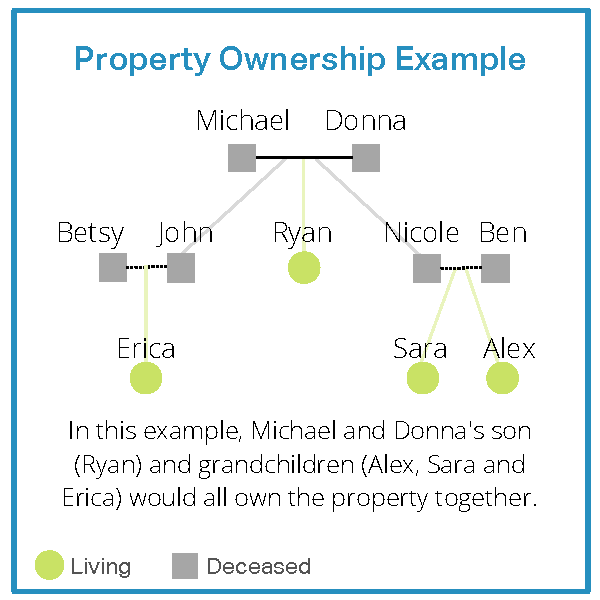Many organizations that provide free home repair assistance after a disaster will require you to prove that you own your home before they can assist you. However, you are not required by law to prove that you own your home in order to authorize repairs. For instance, you can hire a contractor yourself without proving ownership to your contractor. Organizations providing assistance may set their own requirements, which often include proof of ownership.
In some cases, proving ownership of your home is straightforward. For instance, you may be able to provide:
- A deed to the home with your name on it
- A title, if your home is a mobile home, with your name on it
- Proof that you have a mortgage on the home
- A will from the last person holding a deed to the home, showing that that person left the property to you, accompanied by proof that the will has been administered through the courts
- Some people have inherited property without a will, and/or the property is shared by many relatives. Lawyers often call this “heir property.” You may also know this as “family land.”
People who inherited their property without a will are legal owners of the property. However, proving your ownership may be challenging. You may need to prepare a family tree and verify whether other heirs who have died since inheriting the property had wills themselves. If you are in this situation, you should contact Legal Aid NC, or another attorney, to assist you in proving ownership of your property. Some organizations may only provide assistance if all owners of the property, including all heirs, agree to the repairs. An attorney can help you identify all owners of your property. Depending on your circumstances, a family tree can be more complex than the example provided below so it is a good idea to get assistance.

Property Ownership Example
Michael Donna John Ryan Nicole Betsy Ben Sara Alex Erica (Living Deceased)
In this example, Michael and Donna’s son(Ryan) and grandchildren (Alex, Sara and Erica) would all own the property together.
Download our resource:
Additional resources
| Category | Name | Organization |
|---|---|---|
| Disaster Relief | Wills and estate planning for disaster recovery | Legal Aid of North Carolina |

